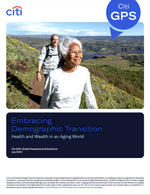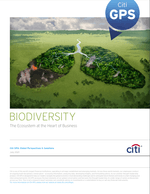CITI GPS report
View CITI GPS ReportInequality and Prosperity in the Industrialized World- Addressing a Growing Challenge sets out how income inequality has risen in most OECD countries in recent decades. The recession following the global financial crisis has exacerbated this trend in some of the worst-hit countries, while sometimes interrupting it elsewhere. The report investigates the forces driving inequality upwards, highlighting the role of technological change, globalisation, deregulation, declining union power, demographic change and weakening redistribution by taxes and transfers.
It also warns that inequality can undermine economic growth, with evidence that global growth has declined in recent decades while inequalities have risen. Growing inequality can also undermine social trust and social cohesion, and contribute to the degradation of the political process and the rise of populism.
Key areas of analysis include:
- In a global context, income inequality has been declining, contributing to a remarkable fall in the total number of people considered to be in extreme poverty since the late 1980s — from 1.85 billion to 800 million — despite rising world population.
- However, income and wealth inequalities have soared since the 1980s across most advanced economies, reflecting in particular growing inequality in incomes from the market and an increasing share going to the top.
- Inequality has risen particularly sharply in some countries that were already relatively unequal decades ago (notably the U.S.), as well as some that started with much lower levels of inequality (such as Sweden).
- Wealth inequality has also risen, and wealth is much more unequally distributed than income. The U.S. is again an outlier, with 75% of wealth held by the top ten per cent compared with an average of 50% across the OECD.
- The drivers of this increase in inequality include technological change and globalisation, as well as the structure and regulation of labour and product markets. The institutional context of public policy also plays a central role, as can be seen from the cross-country variation in how much inequality has risen.
This report launches the Oxford Martin Programme on Inequality and Prosperity. Funded by Citi and led by Professor Brian Nolan, this research programme at the University of Oxford focuses on four central themes in order to respond to the various drivers of economic inequality and the ways inequality impacts on growth and prosperity. The programme will directly address current concerns about rising inequality and its impacts; yield important insights into the drivers of increasing inequality and its effects; and identify a coherent set of responses aimed at promoting inclusive growth and prosperity. While primarily focused on OECD countries, it will seek to incorporate key trends in, and implications for, major emerging economies, most importantly China and India.





